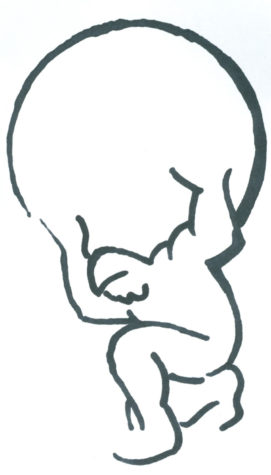Teaching for the world
A reflection on how English teacher Bo Cheli impacted the lives of his students with the use of unconventional teaching methods during his one year at Paly.
As the appeal of the conventional teaching methods begins to fade, many teachers find themselves favoring student-centered and philosophical educating practices. Essentially, philosophical thought in educational circumstances contains more than just rote memorization, which is commonly exhibited in school systems, but the act of engaging with the world and understanding it. The approbation towards philosophical thought was highlighted by Bo Cheli, a former Paly English teacher who taught during the 2014-2015 school year. Cheli is recognized by students and staff due to his instructional efforts to provide students with a trusting environment, oriented around community building.
A working definition of the term “teaching” suggests the explanation of certain information, an action that does not require much exertion from both students and their teacher. The turning point that educators, and especially Cheli, have experienced is the recognizable need for more than just learning, but the motivation to learn, discover and explore, all provided and gifted to students by their teachers. Influenced by the modernization of teaching practices, educators everywhere have been challenged to turn their classroom into one that is autonomous, giving students the chance to understand the importance of accountability. Cheli excelled in these practices– until he announced his resignation after his first year at Paly.

“It was like sticking my hand in a vacuum and reaching for something that’s not there anymore,” senior Stephanie Lee said, describing the feeling when she heard that her favorite teacher would not be returning to Paly the following year. It was Cheli, her freshman English teacher, who had managed to change her life in that freshman english class. Cheli was known for teaching in an aggressive and passionate manner that represented the fast-paced reconstruction of educational teaching strategies.
“He encouraged [students] to express their emotions in ways that aren’t really considered conventional,” Lee said. With traditional teaching practices thrown out the window, Cheli had made himself known within the Paly community as an unconventional teacher. Lee and another one of his past students, senior Ida Sunneras Jonsson, reflect on their experiences as students Cheli’s classes.
“It didn’t hit me hard at first,” Sunneras Jonsson said. “It was honestly surreal. I remember crying a lot on the last day of class.” Cheli had also achieved the formation of a tight knit community in which students felt comfortable to express themselves. A representation of this unique environment is demonstrated through the technique Cheli used to help his students learn the required vocabulary words.
Senior Noga Hurwitz remembers the apprehension that came with Cheli’s vocabulary quizzes. “We would have these grammar quizzes and you could give yourself extra credit,” Hurwitz said. “If two students gave themselves extra credit, then everyone [would receive] minus one point. If no[one] gave themselves extra credit then nothing would happen to anyone.” Standards like these prompted the class to become so close-knit that students did not want to risk negatively impacting their peers as a consequence of their selfishness. Another circumstance that highlights the comforting feeling of security in Cheli’s classroom was the grading process that came after the quizzes. After each vocabulary quiz, Cheli would read off the correct answers and students responded with their scores, announcing them in front of the class. This alternative method encouraged honesty and “owning your grade,” Sunneras Jonsson said. “It wasn’t a class you could lie in or even want to lie in. We were a family.”
The promise of this type of familial environment was destroyed with Cheli’s resignation. “I was not only upset I wouldn’t be experiencing his support and guidance anymore, but I was more upset that nobody recognized the impact this man had on his students,” Sunneras Jonsson said. The most upsetting aspect of this ordeal was presented in the looming possibility that she would never see this teacher again.
Following the official announcement of his resignation, Cheli held fifteen minute meetings with all of his students addressing their progress and giving them feedback. “I just expected him to give me this general spiel of things, maybe ‘Oh you’ve been such a great student’ or ‘It was a pleasure to have you,'”Lee said. “When I sat down next to him… he said, ‘Stephanie, you’re a very strong woman with strong opinions, but you hold yourself back. Stop holding yourself back.’ The fact that he said that opened a door within me to just trust myself…if I didn’t trust [Cheli’s belief] that I was an opinionated woman and I shouldn’t hide from my strength, I probably would’ve shrunk back and stayed within the crowd.”
These meetings not only established the fact that Cheli always strove for a positive classroom community, but that he prioritized his students, their well being and their futures at Paly. “It was … one instance where he really got me to believe in myself. Everything all school year really lead up to that one moment. I wouldn’t change that one moment for the world,” Lee said.
The idea of running into someone you haven’t seen in a long time can seem alarming at first, yet most students in Cheli’s class held no qualms about the likelihood of this happening. “Throughout my sophomore year, I imagined what I would say if I saw [Cheli] at a Safeway or something, [but] I haven’t thought about this in two years,” Lee said. Many of his former students agreed. Following reintroduction and small talk, Lee would recognize the impacts Cheli has made on her life. “I’m now the captain of my speech team and managing editor of a magazine and I wouldn’t have gotten there without you,” Lee said. “’You changed my life so much.’” Sunneras Jonsson agrees that Cheli had a tremendous impact on her life, and that if she were to reunite with him in the future she would explain “[how grateful she is] for not only what he has taught [her] but offering his life and career to teach students in such a critically important and in-depth way,” Sunneras Jonsson said. “Cheli could have easily gotten other jobs or kept his job at Paly if he taught in a way that was easy or generic, but he didn’t want to do that. He actually cared about each and every one of his students.”
Three years later, these students reflect on the ways Cheli impacted them and how it translated throughout their high school careers. Freshman year of high school is considered a formative time in a student’s life, and having a teacher that impacts your life immensely can impact a student’s foundation. Sunneras Jonsson expressed that freshman year was a very challenging transition for her, and that Cheli had helped her open up and exposed the most sensitive parts of herself. She had a very difficult time coping with and expressing negative emotions. Cheli helped her show a side of herself she never even shown to her best friends: he taught her to cry. “It wasn’t that I cried in his class because I was uncomfortable or he made me sad,” Sunneras Jonsson said. “[It was] because I felt like I could be vulnerable. He was just able to bring out the side of me I wasn’t able to show in regular day life.”
Additionally, Lee reflects on how the manner in which Cheli taught set him apart from other teachers she has had. “He didn’t just teach the class about English, but he taught the class how to be themselves, [to not] be ashamed of who they are and how to be a good person, striving to have good morals and to make an impact on the world.”
Cheli provided a safe student environment and came from a place of wisdom and understanding, ultimately representing that he, as a teacher, had recognized the importance of reaching beyond the repetitive give-and-take informational and hierarchical relationship between a teacher and students.
The environment and the relationships that Cheli created during his year at Paly ultimately had a tremendous impact on those around him. As the students he taught in 2015 are preparing to graduate, all memories of Cheli could be lost. The most significant part of Cheli’s career at Paly was the fact that he became such large part of students lives within one year. A teacher that can achieve such a difficult goal and manage to affect a student’s life and make a positive difference is one that they will never forget. During their freshman year, Lee, Sunneras Jonsson and Hurwitz were all affected by Cheli greatly, whether it was educationally, emotionally or philosophically. Cheli’s alternative methods represented the possibility of these modernized methods in newer teachers, providing the hope for a future in which students can learn beyond required curriculum.
“He didn’t just teach the class about English, he taught the class how to be themselves, [to not] be ashamed of who they are and how to be a good person, striving to have good morals and to make an impact on the world.” – Stephanie Lee







